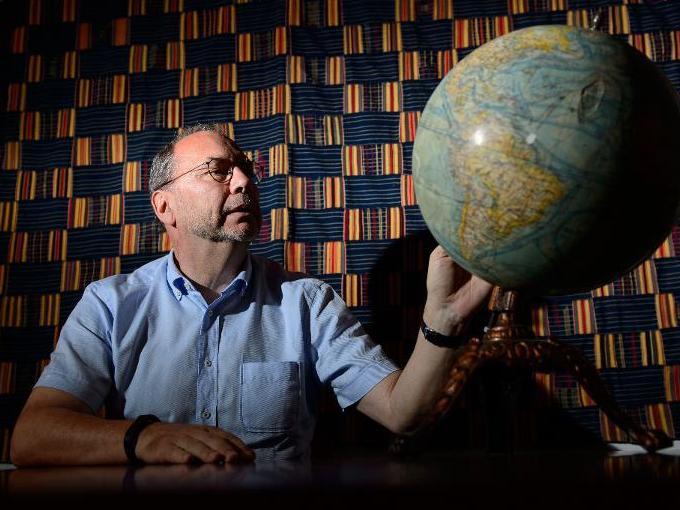The scientist who helped discover the Ebola virus said the outbreak in west Africa was unlikely to trigger a major epidemic outside the region, adding he would happily sit next to an infected person on a train.
But Professor Peter Piot told AFP that a “really bad” sense of panic and lack of trust in the authorities in west Africa had contributed to the world’s largest-ever outbreak.
The Belgian scientist, now based in Britain, urged officials to test experimental vaccines on people with the virus so that when it inevitably returns, the world is prepared.
Since March, there have been 1,201 cases of Ebola and 672 deaths in Guinea, Liberia and Sierra Leone, according to the World Health Organization (WHO).
Doctors Without Borders (MSF) has warned that the crisis is set to get worse and that there is no overarching strategy to handle the crisis.
Piot co-discovered the Ebola virus as a 27-year-old researcher in 1976.
He is now director of the prestigious London School of Hygiene and Tropical Medicine and was previously executive director of the United Nations’ HIV/AIDS programme UNAIDS.
Even if someone carrying Ebola were to fly to Europe, the United States or another part of Africa, “I don’t think that will give rise to a major epidemic,” he told AFP in an interview on Wednesday.
– ‘I was scared’ –
His insights are born of deep experience in the field, highlighted by his impressive CV and the mementos from around the world that dot his office in London.
Piot helped identify Ebola when the laboratory where he was working in Antwerp was sent a blood sample from a Catholic nun who had died in what was then Zaire and is now DR Congo.
From the blood, they isolated a new virus which was later confirmed to be Ebola.
He later went to Yambuku, a village in Zaire’s Equateur province, where an epidemic had taken hold.
Researchers noticed most of the infections were among women aged between 20 and 30 and clustered around a clinic where they went for pre-natal consultations.
It turned out that the virus was being transmitted through a handful of needles which were being reused to give injections to pregnant women.
There were also a string of outbreaks linked to funerals.
– ‘Fear a driving force’ –
He said recent history in Liberia and Sierra Leone was complicating efforts to tackle the deadly virus, which kills as many as nine-tenths of the people it infects.
Staff are also often poorly equipped with no protective gear or gloves, he added.
While there are a couple of experimental Ebola vaccines and treatments which have shown promising results in animals, these need to be tested on people, he added.

COMMENTS
Please let us know if you're having issues with commenting.